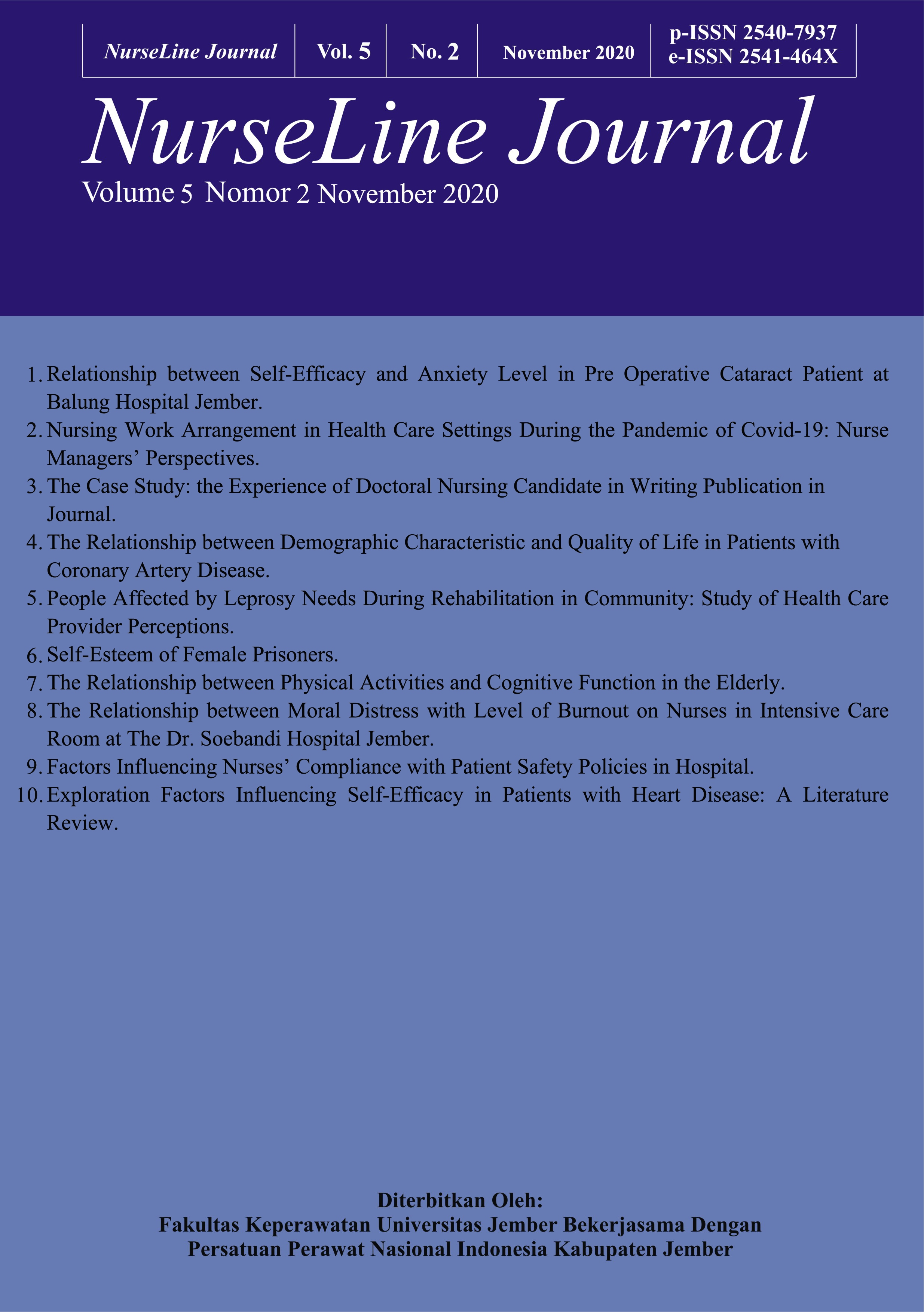The Relationship between Physical Activities and Cognitive Function in The Elderly
DOI:
https://doi.org/10.19184/nlj.v5i2.17652Keywords:
physical activity, cognitive function, elderlyAbstract
ABSTRACT
Physical activity is a factor that can inhibit cognitive decrease in the elderly. One of the preventive actions that can be done by the elderly in slowing down the decrease of cognitive function is to increase physical activity. Physical activity is thought to stimulate nerve growth which might inhibit cognitive decrease in the elderly. When doing physical activity, the brain will be stimulated so that it will increase the Brain Derived Neurotropic Factor which plays a role in keeping nerve cells fit and healthy. Based on the explanation, the aim of this study was to identify the relationship between physical activity and cognitive function in the elderly. This study was a quantitative study with a categorical correlative analytic method. The study used cross sectional study design. The chi-square test and ordinal logistic regression test were used for data analysis. The results of this study stated that the overall physical activities which were exercise, mild activity, heavy activity, use of stairs and participate in social activities showed a significant relationship to cognitive function. Participating in social activities and mild activity were the most significant physical activities that showed relationship to cognitive function, with p-value = 0.001 < 0.05. In conclusion, the findings highlight that the choice of appropriate physical activity can help to maintain cognitive function in the elderly.
Keywords: physical activity, cognitive function, elderly
Downloads
References
Leitzmann, M., Powers, H., Anderson, A. S, Scoccianti, C., Berrino, F., Boutron-Ruuault, M. C, & Romieu, I. (2015). European code against cancser 4th edition: Physical activity and cancer. Cancer Epidemiology, 1-10.
Lestari, Riqqah & Romus. (2017). The relationship between cognitive impairment and hypertension using Indonesian version of Montreal cognitive assessment (Mocca-Ina). JIK, 11 (1), 12-18.
Muzamil, Afriwadi, & Martini. (2014). The relationship between the level of physical activity and cognitive function in the elderly in Jati Village, East Padang District. Andalas Health Journal, 2 (3).
Reusser, Willekens, & Bonneux. (2011). Higher educatio delays and cognitive shortens: A multistate life table analysis of the US health and retirement study. Eur J Epidemiol, 26, 395-403.
Sanchez, & Gough, Mc. (2013). Physical exercise and cognitive performance in the elderly: Current perspectives. Clinical Intervention Aging Journal, 9.
Sauliyusta, & Rekawati. (2016). Physical activity affects the cognitive function of the elderly. Indonesian Journal of Nursing, 19 (2), 71-77.
WHO. (2010). Global recommendations on physical activity for health. Geneva
Wreksoatmodjo, B. R. (2014). The influence of social engagement on cognitive function in the elderly in Jakarta. CDK, 3 (41).








